Neuropathy, often referred to as peripheral neuropathy, is a condition resulting from damage to the peripheral nerves. It causes weakness, numbness, and pain, typically in the hands and feet, but can affect other areas of the body. For those living with neuropathy, the constant search for effective treatments is crucial. Recent advancements in research have brought new hope for managing and potentially reversing this condition. This blog will delve into the latest research on neuropathy treatment, providing insights into emerging therapies and innovative approaches.
Understanding Neuropathy
Before diving into the latest research, it’s important to understand what neuropathy is and its causes. Peripheral neuropathy can result from various conditions, including diabetes, chemotherapy, infections, autoimmune diseases, and more. Symptoms range from mild tingling and numbness to severe pain and muscle weakness.
Recent Advancements in Neuropathy Treatment
1. Stem Cell Therapy
Stem cell therapy is gaining traction as a promising treatment for neuropathy. Researchers are exploring how stem cells can repair and regenerate damaged nerve tissues. In particular, mesenchymal stem cells (MSCs) have shown potential in reducing inflammation and promoting nerve regeneration. Clinical trials are underway to assess the safety and efficacy of stem cell therapy in neuropathy patients.
2. Gene Therapy
Gene therapy involves modifying or manipulating genes to treat or prevent diseases. For neuropathy, researchers are investigating ways to deliver specific genes that can protect nerve cells from damage or stimulate their repair. This innovative approach could offer a long-term solution by addressing the underlying genetic factors contributing to neuropathy.
3. Neuromodulation Techniques
Neuromodulation, the alteration of nerve activity through targeted delivery of electrical stimulation or pharmaceutical agents, has shown promise in neuropathy treatment. Techniques like spinal cord stimulation (SCS) and transcutaneous electrical nerve stimulation (TENS) are being refined to provide more effective pain relief and improve nerve function.
4. New Pharmacological Treatments
Several new drugs are being developed to target the mechanisms underlying neuropathy. These include:
- Nerve Growth Factor (NGF) Inhibitors: Medications that inhibit NGF can help reduce pain and inflammation associated with neuropathy.
- Sodium Channel Blockers: These drugs aim to block specific sodium channels involved in transmitting pain signals.
- Anti-Inflammatory Agents: Targeting inflammation is a key strategy in treating neuropathy, as chronic inflammation can exacerbate nerve damage.
5. Lifestyle and Dietary Interventions
Research has highlighted the role of lifestyle and dietary changes in managing neuropathy symptoms. For example:
- Antioxidant-Rich Diet: Consuming foods high in antioxidants can help reduce oxidative stress and inflammation.
- Exercise: Regular physical activity has been shown to improve nerve function and reduce pain in neuropathy patients.
- Nutritional Supplements: Supplements like alpha-lipoic acid, vitamin B12, and omega-3 fatty acids have demonstrated potential in alleviating neuropathy symptoms.
FAQ: Neuropathy Treatment
Q: What are the most common causes of neuropathy?
A: The most common causes include diabetes, chemotherapy, alcohol abuse, infections, autoimmune diseases, and physical injuries. Diabetes is the leading cause, often resulting in diabetic neuropathy.
Q: How effective is stem cell therapy for neuropathy?
A: While stem cell therapy shows promise, it is still in the experimental stages. Early studies and clinical trials indicate potential benefits in reducing inflammation and promoting nerve regeneration, but more research is needed to confirm its efficacy.
Q: Can gene therapy cure neuropathy?
A: Gene therapy is an emerging field with the potential to address the genetic factors contributing to neuropathy. However, it is not yet a cure. Current research aims to develop treatments that can protect and repair nerve cells, with clinical applications still in the testing phase.
Q: What lifestyle changes can help manage neuropathy?
A: Maintaining a healthy diet rich in antioxidants, engaging in regular physical exercise, managing blood sugar levels (for diabetic patients), avoiding alcohol, and quitting smoking can all help manage neuropathy symptoms.
Q: Are there any new medications for neuropathy pain?
A: Yes, new pharmacological treatments, including nerve growth factor inhibitors, sodium channel blockers, and anti-inflammatory agents, are being developed. These medications aim to target the specific mechanisms underlying neuropathy pain.
Q: How do neuromodulation techniques work?
A: Neuromodulation techniques like spinal cord stimulation and transcutaneous electrical nerve stimulation work by altering nerve activity. They use electrical impulses or pharmaceutical agents to reduce pain signals and improve nerve function.
Q: Can dietary supplements help with neuropathy?
A: Some dietary supplements, such as alpha-lipoic acid, vitamin B12, and omega-3 fatty acids, have shown potential in reducing neuropathy symptoms. However, it’s important to consult with a healthcare provider before starting any supplement regimen.
Q: Is neuropathy reversible?
A: The reversibility of neuropathy depends on its cause and severity. Early detection and treatment can improve outcomes, and some forms of neuropathy, particularly those related to nutritional deficiencies, can be reversed. However, chronic or severe cases may only be managed, not cured.
Know more details visit here: NEURO SCIENCES CENTERS

